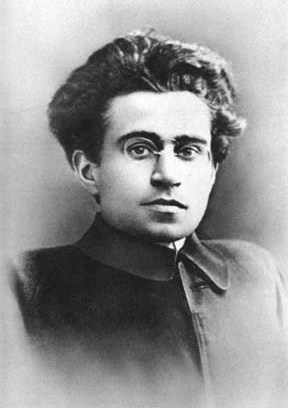More languages
More actions
(Role of intellectuals) Tag: Visual edit |
420dengist (talk | contribs) |
||
| Line 16: | Line 16: | ||
=== Role of intellectuals === | === Role of intellectuals === | ||
In addition to his work on cultural hegemony, Gramsci also made significant contributions to | In addition to his work on cultural hegemony, Gramsci also made significant contributions to the Marxist understanding of the role of [[intellectuals]] within society. He argued that every social class generates its own intellectuals, who play a key role in establishing and maintaining that class's cultural hegemony.<ref>Notebook 10, §44: This passage delves into the role of intellectuals in the creation and propagation of hegemony.</ref> | ||
Gramsci distinguished between "traditional" intellectuals, who see themselves as autonomous and independent from the dominant social class, and "organic" intellectuals, who are directly tied to the class for which they articulate ideas and strategies. Gramsci argued that these organic intellectuals play a critical role in enabling the ruling class to exercise cultural hegemony. | Gramsci distinguished between "traditional" intellectuals, who see themselves as autonomous and independent from the dominant social class, and "organic" intellectuals, who are directly tied to the class for which they articulate ideas and strategies. Gramsci argued that these organic intellectuals play a critical role in enabling the ruling class to exercise cultural hegemony. | ||
Gramsci believed revolutionary intellectuals should collect and refine the ideas of the masses and then encourage them to put them into practice.<ref name=":02">{{Citation|author=[[Vijay Prashad]]|year=2017|title=Red Star over the Third World|chapter=The Lungs of Russia|page=50|pdf=https://cloudflare-ipfs.com/ipfs/bafykbzacecu7gb2ei65us6ip3r2ugcgkblneqcftbm456mb6bzvprkbqk55qm?filename=Vijay%20Prashad%20-%20Red%20Star%20Over%20the%20Third%20World-LeftWord%20Books%20%282018%29.pdf|city=New Delhi|publisher=LeftWord Books}}</ref> | Gramsci believed revolutionary intellectuals should collect and refine the ideas of the masses and then encourage them to put them into practice.<ref name=":02">{{Citation|author=[[Vijay Prashad]]|year=2017|title=Red Star over the Third World|chapter=The Lungs of Russia|page=50|pdf=https://cloudflare-ipfs.com/ipfs/bafykbzacecu7gb2ei65us6ip3r2ugcgkblneqcftbm456mb6bzvprkbqk55qm?filename=Vijay%20Prashad%20-%20Red%20Star%20Over%20the%20Third%20World-LeftWord%20Books%20%282018%29.pdf|city=New Delhi|publisher=LeftWord Books}}</ref> | ||
== References == | == References == | ||
[[Category:Communists]] | [[Category:Communists]] | ||
Revision as of 05:29, 17 June 2023
Antonio Gramsci | |
|---|---|
 | |
| Born | 22 January 1891 Ales, Sardinia, Italy |
| Died | 27 April 1937 Rome, Italy |
| Nationality | Italian |
| Known for | Theory of cultural hegemony Writing the Prison Notebooks |
Antonio Gramsci was an Italian Marxist, one of the founders and leaders of the Italian Communist Party. In 1926, he was imprisoned by Benito Mussolini's fascist regime; he spent the remaining years of his life in prison, eventually dying in 1937 of a mix of several health complications.[1] In prison, he wrote a famous series of assorted notes and Marxist analyses known as the Prison Notebooks.
Political career
Antonio Gramsci joined the Italian Socialist Party in 1913. In 1919, he founded a socialist newspaper called L'Ordine Nuovo. In 1921, Gramsci and several other Marxists split from the Socialist Party and founded the Italian Communist Party (PCd'I) in Livorno. Like many similar splits at the time in Europe, it involved revolutionary Marxists, Gramsci among them, splitting from a reformist party and forming a Comintern-affiliated organization. Gramsci, as a leading figure in the PCd'I, participated in several Comintern meetings in the 1920s.[2] After Amadeo Bordiga, founding leader of the PCI, was arrested in 1923, Gramsci in 1924 became the general secretary of the PCd'I in 1924. That same year, he was elected as a deputy in the Italian parliament.
Ideological contributions
Gramsci believed that trade unions tended towards reformism. Instead, he preferred factory councils that were similar to the Soviets in Russia, which formed dual power against the bourgeois state. Gramsci also advocated for workers to educate each other on the job and train cadres to popularize scientific socialism.[2]
Cultural hegemony
Perhaps the most well-known of Gramsci's contributions, the concept of cultural hegemony expanded the traditional Marxist understanding of class struggle from the political-economic domain to the cultural and ideological ones. Gramsci argued that the ruling class maintains power not merely through force or economic control, but also through cultural and ideological means. In Gramsci's view, the ruling class propagates its own values, norms, and ideologies in society, causing these to be accepted as common sense or natural by subordinate classes. In contrast, a revolutionary class can contest cultural hegemony by disseminating its own (e.g. proletarian) ideology.[3] Gramsci considers this an essential part of the struggle for communism.
Role of intellectuals
In addition to his work on cultural hegemony, Gramsci also made significant contributions to the Marxist understanding of the role of intellectuals within society. He argued that every social class generates its own intellectuals, who play a key role in establishing and maintaining that class's cultural hegemony.[4]
Gramsci distinguished between "traditional" intellectuals, who see themselves as autonomous and independent from the dominant social class, and "organic" intellectuals, who are directly tied to the class for which they articulate ideas and strategies. Gramsci argued that these organic intellectuals play a critical role in enabling the ruling class to exercise cultural hegemony.
Gramsci believed revolutionary intellectuals should collect and refine the ideas of the masses and then encourage them to put them into practice.[5]
References
- ↑ Antonio Gramsci (1971). Selections from the Prison Notebooks: 'Introduction' (pp. xvii–xcvi). New York City: International Publishers. ISBN 071780397X
- ↑ 2.0 2.1 Nicholas Stender (2021-01-01). "Antonio Gramsci: A communist revolutionary, organizer, and theorist" Liberation School. Archived from the original on 2022-01-22. Retrieved 2022-06-24.
- ↑ Antonio Gramsci (1929--1935). Prison Notebooks: 'Notebook 1, §44-§48: This section has important early formulations of the concept of hegemony in relation to the state and civil society.
Notebook 5, §78-§80: Here Gramsci reflects on state power, civil society, and the complex interplay of consent and coercion in maintaining cultural hegemony.
Notebook 13, §17: Here Gramsci discusses the balance of force and consent in the process of maintaining state power.'. [MIA] - ↑ Notebook 10, §44: This passage delves into the role of intellectuals in the creation and propagation of hegemony.
- ↑ Vijay Prashad (2017). Red Star over the Third World: 'The Lungs of Russia' (p. 50). [PDF] New Delhi: LeftWord Books.
